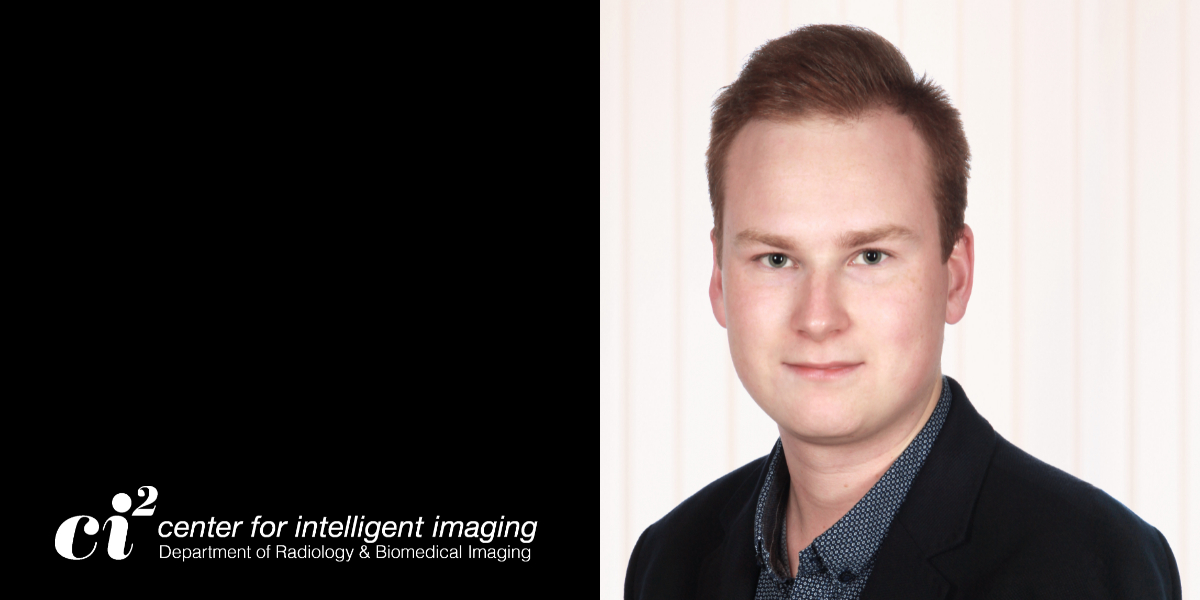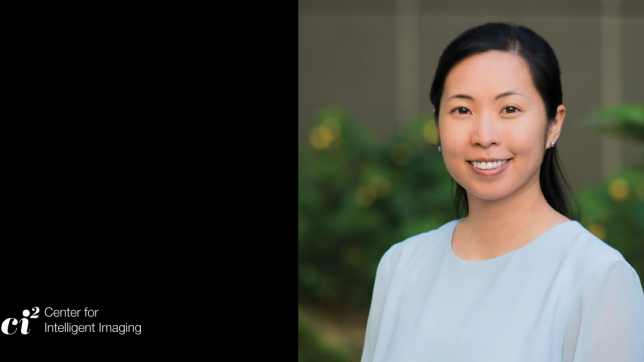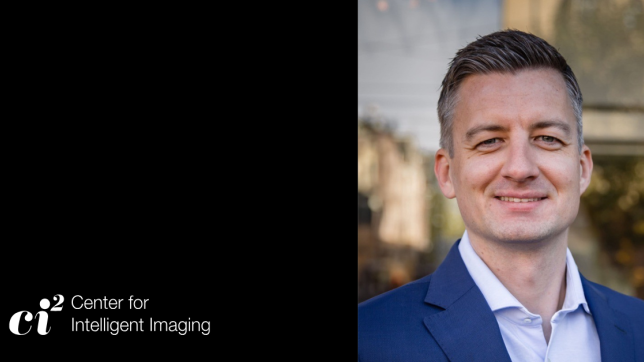We're excited to introduce Erik Gösche, a 23-year-old master's student at Friedrich Alexander University (FAU) in Erlangen, Germany, who is currently doing research at UC San Francisco's Center for Intelligent Imaging (ci2). Erik, originally from Muldenhammer, Germany, arrived in San Francisco in March 2023 and will be here until September, working under the guidance of Andreas Rauschecker, MD, PhD, at the Rauschecker-Sugrue Lab.
Read our conversation with Erik to learn more about his background and the research he's doing here at ci2.
Tell me about your background.
In Germany, I received my bachelor's degree in computer science, and I am now currently studying data science at FAU for my master's degree. Here at UCSF, I'm working on a research project that will be also my master thesis. This is my second time in the U.S., but first time here in a professional capacity.
What is the project about?
The project is about segmentation of MRI data. I'm working on a new approach to build a pipeline to segment anomalies in brain data right from the frequency data, which comes directly out of the MRI scanner. It's complicated, but it's very fun and interesting.
How did you get interested in this topic?
I have always been interested in medicine. I think it's fascinating because this work can really impact people. In fact, I think I would have studied medicine if I didn't study computer science. So, for my master's research, I decided to focus on medical resonance (MR) machines and scanners and medical engineering, in part because FAU is very famous for its work on medical engineering — many medical inventions started there. I took related courses at FAU and I really liked the whole topic.
Your time at UCSF was kicked off in March with the Scientific Sessions hosted by ci2 and FAU. How was that?
It was pretty cool. It was also my first conference because I'm somewhat new to this research topic. It was interesting to also see what professors from my university are working on and see what research is being done here at UCSF. It was also nice because I arrived here — in a foreign country — with my friends and people I know.
How did you first hear about this opportunity with the Rauschecker-Sugrue Lab?
This all started because I wrote my MR professor in Germany about doing an internship. He said that FAU was creating a partnership with UCSF, and that I could be the first student work here. I was very happy to hear about this opportunity.
How does it feel to be the first FAU student to do the internship here at UCSF?
It's a bit pressure, but I'm really thankful to be the first one and I'm looking forward to seeing other students from our university take my place and continue to work here when I leave.
Have you always been interested in artificial intelligence?
Well, I think it started during my bachelor's degree, when I specialized in IT security. The coursework included a module on data mining. We spoke a little bit about artificial intelligence, but this little bit was enough for me to get fascinated by this topic.
Do you think you'll keep working in artificial intelligence going forward?
Yes, of course, because I really like this topic. I now know a lot about artificial intelligence, I've built up my knowledge base and I think it would be only natural to stay in this area.
What are your long-term goals?
I'm thinking about pursuing a PhD if there's a great opportunity, but I could also imagine starting to work directly after my master's. Ultimately, I really want to stay in the MR and medical engineering area, because I really like the topic, so I think I will do something in the realm of research on MR data.
What do you like to do outside of work?
Well, my hobbies changed a bit when I arrived here in San Francisco, but I've always liked to take pictures — I'm a hobby photographer — and ride my bicycle. I sometimes go hiking with friends. And since arriving here, I got into basketball, and now I watch it with friends I met here.
What do you think so far if San Francisco and the U.S.?
It's a pretty cool city. I went to New York when I was 14, for tourism, and there I really liked all these extremely high buildings and that there's always something to do. I think the same applies to San Francisco. It's a very huge city with so many different communities and it's very diverse. That's what I really like.
Thanks, Erik, for taking the time to talk with us!




